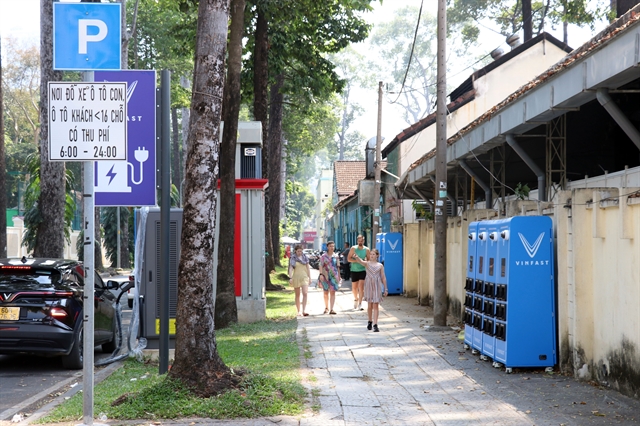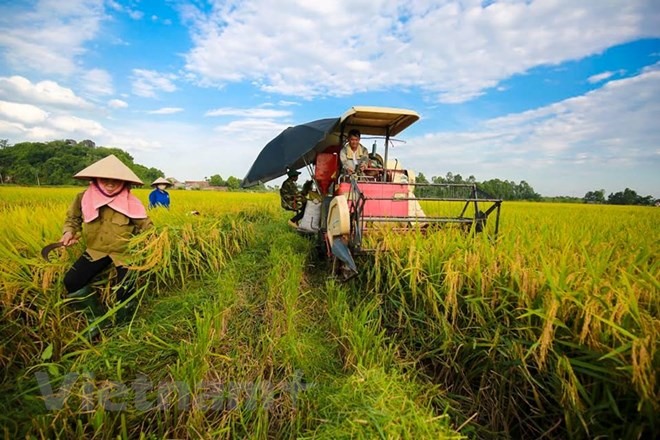 Society
Society

" />The Mekong Delta province of Trà Vinh plans to increase the production values of the agro-forestry-fishery sector by more than 4 per cent by 2020, according to the provincial People’s Committee.
 |
| Trà Vinh Province plans to create large-scale rice fields to increase productivity. — VNA/VNS Photo Lê Minh Sơn |
TRÀ VINH— The Mekong Delta province of Trà Vinh plans to increase the production values of the agro-forestry-fishery sector by more than 4 per cent by 2020, according to the provincial People’s Committee.
At a conference reviewing the last five years of agricultural restructuring, Kim Ngọc Thái, the committee’s vice chairman, said that labour productivity would increase by more than 5 per cent by 2020.
The number of rural labourers in the sector would be under 40 per cent, while the number of trained labourers in agriculture would increase to nearly 50 per cent, according to Thái.
Moreover, the province aims to double the income of local residents by 2020 against the level in 2013.
To obtain the targets, the province’s project on agricultural restructuring will be carried out by improving the added value of agricultural products and developing sustainable agriculture, Thái said.
The province will choose eight products, including paddy rice, coconut, other fruits, beef and seafood, that have potential for development.
Thái proposed that the Government issue a policy on new production that can produce high added-value agricultural products with advanced technology.
The Government should also provide funds for infrastructure and irrigation projects for aquatic cultivation.
Between 2013 and 2017, the annual GDP growth rate for agriculture was 1.45 per cent, or more than VNĐ35.5 trillion (US$1.5 billion) per year, accounting for nearly 36 per cent of the province’s total production value.
In 2017, the production value of crops reached nearly VNĐ127 million per ha, an increase of more than VNĐ19 million per ha compared to the one in 2013.
The production value for aquatic cultivation reached nearly VNĐ284.5 million per ha, increasing by nearly VNĐ78 million per ha.
The average income per capita in the province’s rural areas last year was VNĐ29 million, 1.7 times higher than in 2013.
Since 2014, the province has shifted 13,300 ha of rice cultivation to other agricultural and aquatic products, leading to an increase of 1.5 to 4 times in production compared to rice cultivation.
However, there is limited co-operation between production and consumption of agricultural products, leading to erratic sales of many products.
Nguyễn Văn Nhiễm, chairman of the People’s Committee in Tiểu Cần District’s Phú Cần Commune, said that farmers with safe products had difficulty in signing contracts with enterprises.
Ngô Thanh Xuân, vice chairman of the Cầu Kè District People’s Committee, said farmers in the district had the same problem.
Xuân proposed that the province provided assistance in building value chain models in co-operative production.
Phạm Minh Truyền, deputy director of the provincial Department of Agriculture and Rural Development, said that local authorities were uncertain about providing guidance on what to plant and breed to meet market demand.
The province has also faced problems calling on enterprises to cooperate in production, processing and consumption, Truyền said.
Most agricultural production in the locality is on a small scale, leading to difficulties in building brand names and applying high-tech, he said, adding that most farmers have not accessed preferential policies.
Nguyễn Thiện Nghĩa, deputy director of the provincial Department of Science and Technology, said that production costs for agricultural products were higher than in other countries, leading to less competitive products, especially those that can meet export demand. — VNS